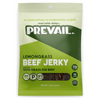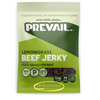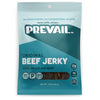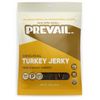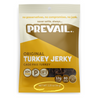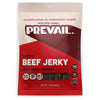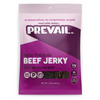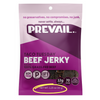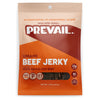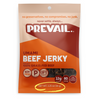Why Grass Fed Beef Is Good For Your Gut

When it comes to maintaining a healthy gut, people often overlook the importance of the meat they consume. But not all beef is created equal. Grass-fed beef is known for its many health benefits, one of which is its positive impact on our gut microbiome.
In this post, we’ll delve into what sets grass-fed beef apart from its grain-fed counterpart and how incorporating it into your diet can help you achieve a healthier gut.
What is Grass Fed Beef?
Grass fed beef is a vital part of clinical nutrition for many individuals. Unlike conventionally raised cattle, grass fed beef comes from cows that have only eaten grass and other forage throughout their growing season.
This all-natural diet results in a meat that is filled with more omega-3 fatty acids, vitamin E, beta-carotene, and conjugated linoleic acid (CLA) than grain-fed beef. In addition to the health benefits, supporting grass fed agriculture is an eco-friendly choice that can help reduce carbon emissions and promote animal welfare. So next time you're eating steak or burgers, consider choosing grass fed beef as a healthier and more sustainable option.
Grass-Fed Beef Contains Higher Levels of Conjugated Linoleic Acid
Conjugated Linoleic Acid (CLA) is a type of fat that is predominately found in grass-fed beef. Studies have shown that consuming CLA can help reduce inflammation in the gut and improve overall gut health. On the other hand, grain-fed beef contains significantly lower levels of CLA due to their diet, which can lead to a less favorable effect on gut health.
Grass-Fed Beef Helps Balance Your Omega-3 to Omega-6 Ratio
Grass-fed beef contains a healthier balance of Omega-3 and Omega-6 fatty acids. These fatty acids play a crucial role in our overall health, and a ratio that tilts too much towards Omega-6 can trigger inflammation in the gut. Incorporating grass-fed beef into your diet can help balance this ratio, reducing inflammation and promoting healthy gut bacteria.
Grass-Fed Beef is Free of Antibiotics and Hormones
Conventionally-raised cattle are often given antibiotics and growth hormones to promote faster growth and ward off disease. These chemicals can disrupt the natural balance of the gut microbiome. Grass-fed beef, on the other hand, is free from these chemicals, making it a cleaner and healthier choice for your gut.
Grass-Fed Beef is Rich in Important Nutrients
In addition to its gut-healthy properties, grass-fed beef is also rich in vitamins and minerals such as zinc and iron. These nutrients help support a healthy immune system, promoting the growth of beneficial gut bacteria. Consuming a variety of nutrients from whole foods, including grass-fed beef, has been linked to a thriving and diverse gut ecosystem. The nutritional benefits from grass fed cattle are much higher than grain fed cattle.
Grass-Fed Beef Promotes Sustainable Farming Practices
Choosing grass-fed beef over conventional beef also has environmental implications. Grass-fed farming does not rely on artificial fertilizers or pesticides, promoting more sustainable farming practices and the conservation of natural habitats. Sustainable farming practices can help promote a more biodiverse ecosystem in the soil, leading to improved soil health and healthier livestock.
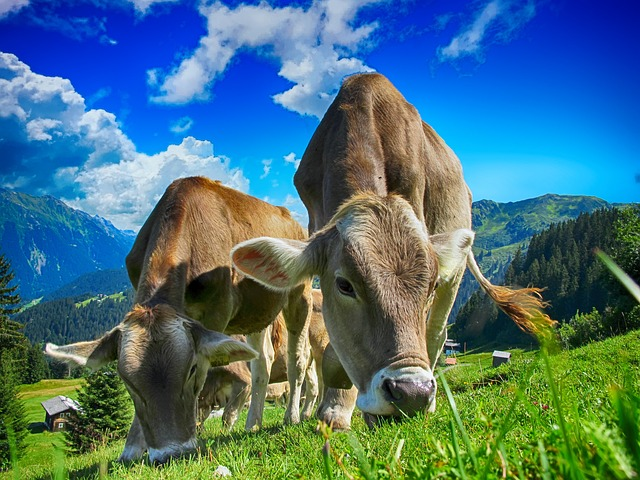
Why Grass Fed Beef is Better for You
Beef is a popular source of protein for many people. It is a versatile meat that can be used in a multitude of dishes. However, not all beef is created equal. Grass-fed beef is becoming increasingly popular due to its many health benefits.
Nutritious Benefits
Grass-fed beef has higher nutrients levels when compared to conventional grain fed beef. Grass-fed meat is much richer in Omega-3 fatty acids, which are healthy fats that promote heart health and may help reduce inflammation. They're also considered a lean beef that is lower in saturated fat. Grass fed beef also has higher levels of vitamin A, E and other antioxidants. Vitamins and minerals are crucial to the body's essential functions maintaining good health.
Lesser Chemical Exposure
The majority of beef in our supermarkets, and fast food chains are raised in crowded feedlots where they are fattened up rapidly with the use of various growth hormones, antibiotics, and other synthetic chemicals. Most cattle are also fed corn and soybeans rather than grass, contrary to its biology. Conventional beef can contain residues of these harmful chemicals. Grass-fed, pasture raised, organic beef, however, lead a more natural life where they feed on only grass in a pasture, minimizing their exposure to harmful chemicals.
Improved Animal Welfare
Conventionally farmed cattle are raised in crowded conditions and are often confined. Many are pumped with chemicals to make them grow faster, which can cause pain and suffering. Grass-fed cattle can graze naturally and lead an overall healthier life. This results in a more ethically raised animal and a higher quality of meat.
Environmentally Friendly
The conventional beef industry is one of the leading sources of greenhouse gas emissions. Conventionally farmed cattle require lots of land, chemical fertilizers and lots of energy to produce. Grass-fed beef requires far less water and uses fewer resources, resulting in less environmental damage. Consuming grass-fed beef promotes sustainable farming practice and minimizes environmental impact.
Better Tasting
Grass-fed beef tastes better than conventional beef. It is lean, tender and has a firm texture. Conventional beef, on the other hand, can be greasy, tasteless, and tough. Grass-fed beef has a rich flavor, mainly because they lead a happier life in green pastures.

How to Find Quality Grass-Fed Beef
There has been an increasing demand for grass-fed beef in recent times due to its many health benefits and ethical production methods. However, finding it isn't always easy. The good news is that we have compiled a comprehensive guide to help you find the best quality grass-fed beef in your area.
Research Local Farms
The first step in finding high-quality grass-fed beef is researching local farms in your area. You can easily find them online through a Google search, or through your local farmer’s market or food co-op. These farms typically raise their animals using rotational grazing methods, allowing them to graze on fresh grass which results in healthier and more nutritious meat. You can also ask the farmers about their farming practices to ensure that they meet your standards.
Buy from a Local Butcher
Once you’ve found a local farm that produces grass-fed beef, the next step is to find a local butcher who can prepare it for you. A good butcher should have knowledge about the meat and be able to provide recommendations on the best cuts for your needs. You may also want to ask them about their sourcing practices, to ensure that the meat is grass-fed, and inquire about processing methods.
Consider Online Retailers
Another option for finding quality grass-fed beef is by purchasing from online retailers. Many farms now offer online sales and will ship directly to your doorstep. The advantage of purchasing online is that you have a wider selection to choose from and can compare pricing between different farmers.
Check Out Your Local Supermarket
While not as common as grain-fed beef, many mainstream supermarkets now offer grass-fed beef. It's essential to read the labels to ensure that the meat is, in fact, grass-fed and that it doesn't contain any preservatives or additives. You can also ask the butcher at your supermarket about the origin of the meat to learn more about how it was raised and produced.
Understand Labels
Lastly, it's crucial to understand the different labels on packaged meat products. Knowing the difference between “grass-fed,” “grass-finished,” and “100% grass-fed” can make all the difference. “Grass-fed” only means that the animals were initially fed a grass-based diet, while “grass-finished” indicates that the animal finished their lives on grass pasture.
“100% grass-fed” beef means that the animal was exclusively fed with grass throughout its life. Just because it says certified organic does not mean that they're not grain fed cows. Certified organic only means that your beef meat will be free of contaminants, but it is most likely farmers are raising animals on their farm using grass and grains.
Are You Looking For A Grass Fed Snack?
While most meat is considered “grass-fed,” it’s the “grass-fed, grass-finished” meat that sets itself apart. But what exactly does “grass-finished” mean? It refers to the final stage of a cow’s life, where they are kept on the pasture instead of being fed grain to put on weight. This ultimately leads to higher-quality and more delicious meat.
If you're tired of the same old snacks and crave something that's truly good for your body, our grass fed jerky could be the answer. Made from only the highest quality of meats, our jerky is a natural and delicious alternative to many of the overly processed snacks that crowd the shelves. With no added hormones, antibiotics, or artificial flavors, you can feel good about giving your body the sustenance it deserves. So why not give Prevail Jerky a chance? It just might become your new go-to snack.
At our company, we work exclusively with family farms in New Zealand, where cows can graze on the pasture all year long. Experience the unbeatable taste and quality of “grass-fed, grass-finished” meat today.
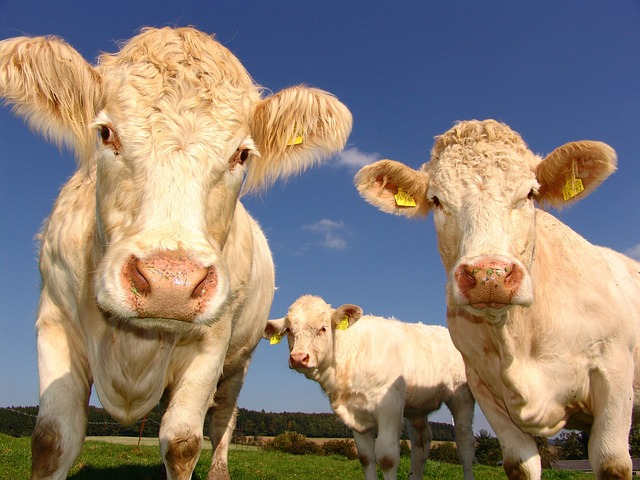
Conclusion
Incorporating grass-fed beef into your diet can have many health benefits, including promoting a healthy gut microbiome. Thanks to its higher levels of fatty acids, CLA, and key nutrients, grass-fed beef has been linked to reduced inflammation, improved gut health, and a more diverse gut microbiome.
By choosing grass-fed beef, you can also support more sustainable and environmentally-friendly farming practices. So, the next time you’re at the grocery store or the butcher shop, consider swapping out your regular beef for grass-fed beef and reap the benefits for your gut health.


